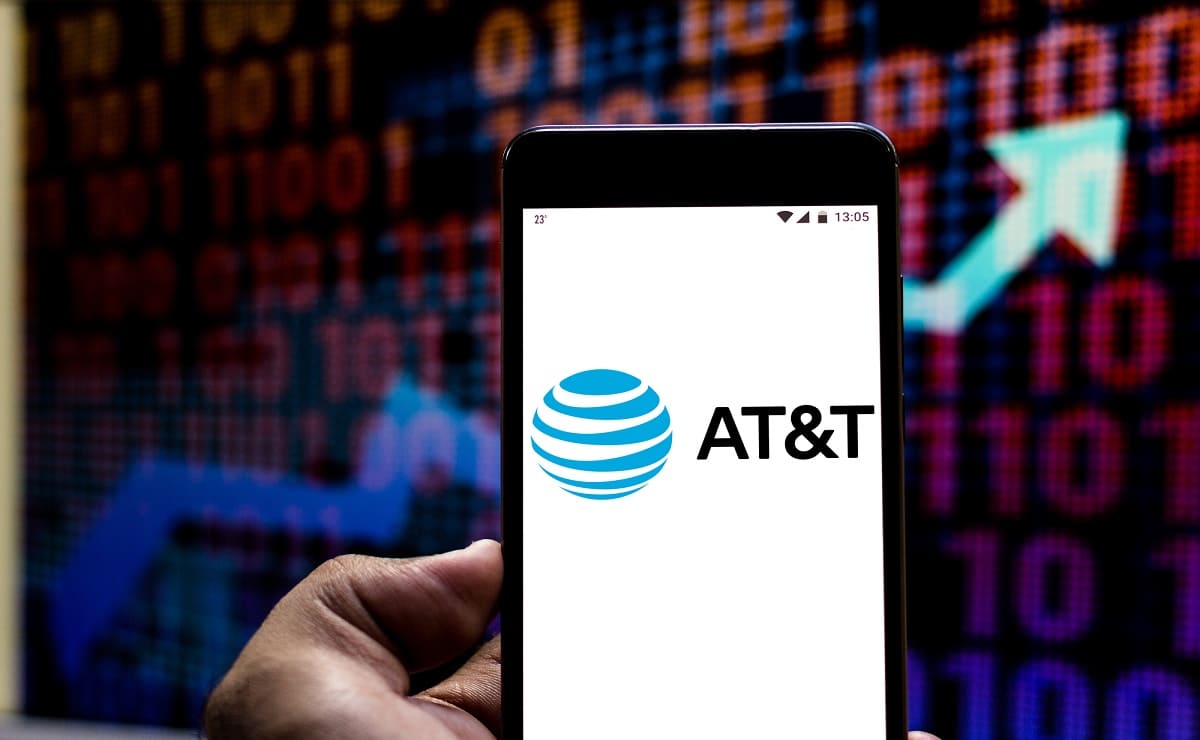

Finance
Why Comcast Does Credit Inquiry
Published: March 5, 2024
Learn why Comcast conducts credit inquiries and how it impacts your finances. Understand the significance of credit checks and their role in the financial process.
(Many of the links in this article redirect to a specific reviewed product. Your purchase of these products through affiliate links helps to generate commission for LiveWell, at no extra cost. Learn more)
Table of Contents
Introduction
Credit inquiries can often seem like a mysterious aspect of our financial lives. Whether you're applying for a new credit card, a loan, or even setting up utilities such as cable and internet, it's not uncommon to encounter a credit inquiry. These inquiries can have an impact on your credit score, which in turn affects your financial standing. In the context of cable and internet services, it's not unusual to wonder why companies like Comcast conduct credit inquiries.
Understanding the rationale behind credit inquiries and their implications is crucial for making informed financial decisions. In this article, we'll delve into the intricacies of credit inquiries, explore why Comcast and similar companies perform them, and discuss the potential impact of these inquiries on consumers. Additionally, we'll provide insights on how individuals can minimize the impact of credit inquiries, empowering them to navigate the financial landscape with confidence and knowledge. Let's embark on a journey to unravel the significance of credit inquiries and their relevance to the services we use in our daily lives.
Understanding Credit Inquiries
Credit inquiries, also known as credit pulls or credit checks, occur when a third party requests to view an individual’s credit report from a credit bureau. There are two types of credit inquiries: hard inquiries and soft inquiries. Hard inquiries are typically initiated when a person applies for credit, such as a loan or a credit card. These inquiries can impact the individual’s credit score and are visible to other creditors. On the other hand, soft inquiries are usually made for background checks or pre-approved offers and do not affect the credit score.
It’s important to note that credit inquiries are a standard part of the process when applying for various financial products and services. They provide potential lenders and service providers with insight into an individual’s credit history and financial behavior, aiding in the assessment of creditworthiness and risk. Understanding the distinction between hard and soft inquiries and their implications is essential for consumers to make informed decisions about their financial activities.
Now that we’ve established the fundamentals of credit inquiries, let’s explore the specific reasons why companies like Comcast conduct these inquiries and how they impact consumers.
Why Comcast Conducts Credit Inquiries
Comcast, like many other service providers, conducts credit inquiries as part of its standard procedure when customers sign up for their services. The primary reason for this practice is to assess the potential financial risk associated with providing services to a new customer. By reviewing an individual’s credit history, Comcast can gain valuable insights into their financial responsibility and past payment behavior. This helps the company determine the likelihood of timely payments for the services rendered, reducing the risk of non-payment and financial loss.
Additionally, credit inquiries enable Comcast to tailor its service offerings based on the customer’s credit profile. For instance, individuals with strong credit histories may qualify for special promotions, discounted rates, or premium service packages. On the other hand, customers with limited or poor credit histories may be subject to different terms, such as security deposits or specific payment arrangements. This personalized approach allows Comcast to mitigate potential risks while providing competitive services to a diverse range of customers.
It’s important to recognize that Comcast’s decision to conduct credit inquiries is not aimed at discriminating against individuals with lower credit scores. Instead, it serves as a prudent business practice to safeguard the company’s financial interests and maintain a sustainable service model. By evaluating the creditworthiness of prospective customers, Comcast can make informed decisions regarding service approvals and payment terms, ultimately contributing to the stability and reliability of its operations.
Now that we’ve explored the rationale behind Comcast’s credit inquiries, let’s delve into the potential impact of these inquiries on consumers and their credit profiles.
Impact of Credit Inquiries
Credit inquiries, particularly hard inquiries, can have varying impacts on an individual’s credit profile. When a company like Comcast conducts a hard inquiry as part of the service sign-up process, it becomes a part of the customer’s credit history. While a single hard inquiry may have a minimal effect on the credit score, multiple inquiries within a short period can potentially lower the score and raise concerns among creditors.
It’s essential for consumers to understand that the impact of credit inquiries is just one piece of the credit scoring puzzle. Factors such as payment history, credit utilization, length of credit history, and credit mix also play significant roles in determining an individual’s creditworthiness. However, excessive credit inquiries can signal higher risk to potential lenders and may influence their decisions when extending credit or offering favorable terms.
Fortunately, credit scoring models are designed to account for the rate shopping behavior related to certain types of loans, such as mortgages and auto loans. When consumers shop for the best rates on these specific types of loans within a condensed timeframe, the credit scoring systems typically recognize and accommodate this pattern, treating multiple inquiries as a single inquiry for scoring purposes.
While the impact of credit inquiries on credit scores is a valid consideration, it’s important to approach the situation with a balanced perspective. The potential impact of a single credit inquiry should not deter individuals from seeking essential services such as cable and internet. Instead, consumers can take proactive steps to minimize the impact of credit inquiries and maintain healthy credit profiles.
As we explore strategies to mitigate the impact of credit inquiries, it’s crucial for consumers to understand how they can navigate this aspect of their financial journey and make informed decisions when engaging with service providers like Comcast.
How to Minimize the Impact of Credit Inquiries
While credit inquiries are an inevitable part of certain financial transactions, there are strategies that individuals can employ to minimize their impact on credit scores and overall financial well-being. Here are some actionable steps to consider:
- Plan Ahead for Credit-Dependent Activities: When anticipating the need for new credit or services that require credit checks, such as setting up utilities or applying for loans, it’s beneficial to plan these activities within a concentrated timeframe. This approach allows multiple inquiries to be treated as a single inquiry for scoring purposes, reducing the potential impact on credit scores.
- Research Service Providers’ Credit Policies: Before signing up for services such as cable and internet, individuals can inquire about the service provider’s credit inquiry policies. Understanding how the company evaluates credit and whether they perform hard or soft inquiries can help consumers make informed choices that align with their financial goals.
- Monitor Credit Reports Regularly: Staying informed about the contents of one’s credit report is essential for detecting any unauthorized or erroneous inquiries. By monitoring credit reports regularly, individuals can identify and address any inaccuracies that could potentially impact their credit scores.
- Consider Alternative Service Arrangements: In cases where credit inquiries pose concerns, individuals can explore alternative arrangements with service providers. This may involve providing a security deposit or opting for prepaid service options, which can alleviate the need for extensive credit evaluations.
- Build and Maintain Healthy Credit: Focusing on responsible credit management, such as making timely payments, keeping credit card balances low, and avoiding unnecessary credit applications, can contribute to a positive credit profile. By prioritizing sound financial habits, individuals can mitigate the impact of occasional credit inquiries.
By implementing these proactive measures, individuals can navigate credit inquiries with greater confidence and minimize their potential effects on credit scores. It’s important to approach credit-related decisions thoughtfully and leverage available resources to safeguard one’s financial standing while accessing essential services.
Conclusion
Credit inquiries are an integral aspect of the financial landscape, influencing various transactions and service sign-ups, including those with companies like Comcast. Understanding the purpose and impact of credit inquiries empowers individuals to make informed decisions and take proactive steps to manage their credit profiles effectively.
As we’ve explored, Comcast conducts credit inquiries to assess the financial risk associated with providing services to new customers. While these inquiries can have implications for credit scores, it’s essential to recognize that they are just one component of the broader credit evaluation process. By maintaining healthy credit habits and implementing strategic approaches, individuals can minimize the impact of credit inquiries and navigate financial transactions with confidence.
Furthermore, consumers can leverage their understanding of credit inquiries to engage with service providers in a manner that aligns with their financial goals. By researching credit policies, planning credit-dependent activities strategically, and monitoring credit reports regularly, individuals can proactively manage the impact of inquiries while accessing essential services.
Ultimately, the significance of credit inquiries extends beyond their immediate effects on credit scores. They serve as a reflection of individuals’ financial behaviors and play a role in shaping their financial opportunities. By approaching credit inquiries with awareness and diligence, consumers can position themselves for financial stability and make well-informed choices when engaging with service providers and pursuing credit-dependent activities.
As we continue to navigate the intricacies of the financial world, understanding credit inquiries and their implications equips us to make sound financial decisions, build strong credit profiles, and access the services we need while maintaining financial well-being.














